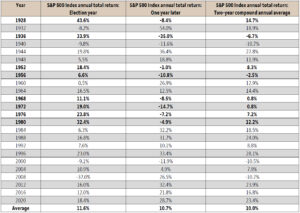Dear Reader,
A reminder: Starting with this issue, I’ll be publishing this blog once a week, rather than twice. I’m hoping this will allow me to finish a few of the 16 (no lie) books I am almost done writing. Plus, I hope to find a bit of extra time to cover a few more topics, particularly those you seem to like. As you can see, this particular issue is almost twice as long as a “regular” issue. But, hey – just read what piques your interest!
Mark Ford
Another Great Thanksgiving Celebration in Nicaragua!
After two great weeks enjoying the rugged beauty of the Pacific coastline of Nicaragua, K and I are back in Delray Beach, getting reacquainted with the mesmerizing flatness of the Atlantic coastline.

The grandkids dancing on the beach at Rancho Santana
For six or seven years now, we’ve wrangled our kids and grandkids down to Rancho Santana to participate in the nearly non-stop fun and games the resort puts on for its guests from mid-November through the new year. And every time I’m there, I have the same thoughts:
* Nicaragua is an extraordinarily beautiful country, with just about every natural ecosystem a nature-lover could want. Mountains, valleys, cliffs and hills, natural springs, streams, and rivers, dozens of gorgeous lakes (including Lake Nicaragua, one of the largest in the Americas), endless acres of farmland, cattle country, and world-class fishing and surfing along the country’s entire western coast.
* The people of Nicaragua are exceptional in many of the best ways a culture of people can be exceptional. I’ve visited more than 80 countries in my time and spent a fair amount of time in more than a dozen. I’ve learned that every country – and especially those with largely native populations – has its own set of personality traits that distinguish its people. I find Nicaraguans exceptional in their fundamental goodness. I don’t know how else to describe it. It’s a combination of being ethical and hard-working, welcoming and good natured, optimistic, family-oriented, conservative, and humble. And they like to laugh.
* Notwithstanding the occasional need for a small ($5 to $25) donation to local law enforcement to deal with ill-defined traffic violations, the experience of going about one’s business in Nicaragua is surprisingly free and unencumbered. The government is tough on non-profit entities because they are sensitive to anti-Sandinista ideas and propaganda. But if you are living in Nicaragua to develop businesses and create wealth for the local population, you run into very little of the senseless opposition you sometimes find in the States.
Rancho Santana is really and truly one of the best resort communities in the world. It has become much more than I expected or even hoped it would become. I’m proud to have been a part of its history.
If you’d like to know more about Rancho Santana – maybe check it out for a possible visit – click here.

K and I moved to South Florida in 1982 to take advantage of a job offer I had in the up-and-coming retirement paradise of Boca Raton. But as native New Yorkers, we came down reluctantly. K wasn’t happy about leaving everything comfortable and familiar and no longer being surrounded by family on Long Island. And I saw Florida as a vast cultural and social wasteland, half expecting to be chewing tobacco with rednecks, hunting alligators for food, and taking our kids to places like Monkey Jungle on weekends.
Our fears did not materialize.
Florida, we gradually discovered, was a great place to make intelligent and interesting friends, provide our children with an excellent education, and enjoy the state’s climate and abundant natural sources year-round.
It also turned out to be a land of abundant entrepreneurial and career opportunities, with mostly sensible and bearable state government regulations and an economy that was booming and has kept growing for the last 30 years.
Still, the old prejudices lingered in my subconscious. And when people from LA, NYC – or Paris or London, for that matter – would ask me, in a condescending way, “What is it like to actually live in Florida?” I felt defensive. So, I began to take mental notes on the things about Florida that are good and even unique, comparing and contrasting its benefits and virtues to those of other states.
I haven’t written much about Florida here on the blog. I have, though, no doubt mentioned some of the most obvious things worth boasting about, including the fact that we have coastlines on both the Atlantic Ocean and the Gulf of Mexico… we have lots of sunshine… and we are threatened only by hurricanes, rather than a combination of earthquakes, landslides, forest fires, tropical storms, snowstorms, and massive pollution. Just to mention the geographic advantages.
But there are other good reasons why Florida is a great state to live and work in.
Such as…
Florida Has a Citizen-Friendly Income Tax Policy
New York and California have the highest state tax rates on the three most important ways that ordinary citizens earn money and gain wealth: capital gains, dividends, and business income. Combined, those taxes can reach more than 13% (on top of federal taxes) for residents of Manhattan. But in Florida, state taxes are zero. Nada.
Whenever I say this to my NYC or LA friends, they respond by claiming that Florida’s property taxes are higher. But I have paid property taxes in NYC and LA. And I know that after you sort through the details and compare apples to apples, the amount of dollars in property taxes you will pay in Florida is about the same (in some cases less) as you’d pay there.
You’d think that, without its own income tax, a state as large and as populous as Florida would have terrible roads, badly working utilities, non-functioning public services, and a complete lack of social support for the poor. None of that is true. On those counts, and just about any others you’d care to research, you’ll find that Florida does very well compared to the rest of the states.
Florida’s citizen-friendly tax policies are substantial and build up over time. Since we moved to Florida in 1982, for example, I’ve “saved” tens of millions of dollars in income taxes alone, compared to what I would have paid in California or New York.
Florida Has a Business-Friendly Government
Ken Griffin, CEO of the multibillion-dollar hedge fund Citadel, moved his company’s offices from Chicago to Miami last year. After doing business in Florida for 12 months, he publicly predicted that Florida – Miami, in particular – could replace NYC as the world’s new financial mecca. Why? Because, he said, “Miami represents the future of America… with a political environment that encourages growth.” In moving his headquarters to Florida, Griffin is following in the footsteps of Wall Street icons including Carl Icahn and Paul Singer, and Jeff Bezos, who left Seattle and relocated to Miami.
Those are just three of the billionaires that have relocated to Florida recently, bringing with them tens of billions of dollars’ worth of additional business and business income to Florida’s economy. And if I were to include the centi-millionaires and deca-millionaires, the list would be very long indeed.
Florida Has a Reasonable Cost of Living
California and New York are both near the top of the Statista Cost of Living Index for US states, with a rating of 138 for California and 135 for New York. Florida is not among the cheapest states to live in, but with a rating of 102, it is a bargain compared to them. For, say, an $80,000 a year lifestyle that you could enjoy in Florida, you’d have to pay over $110,000 in New York or California.
Economics as a theory can be complicated and subject to endless debate. But real-life economics, the kind that we all experience every time we pay a bill, is easy to understand and quite powerful in terms of motivating human behavior. It is, in fact, among the reasons why the population of New York has decreased by 2 million while the population of Florida has increased by about the same amount.
As Stephen Moore pointed out in a recent issue of Taki’s Magazine, “These Americans on the move have taken their money and businesses with them. IRS tax return data tells us that some $50 billion have matriculated out of New York in 2020 and 2021. Meanwhile, Florida has gained that much net income. The skylines in Miami and even Palm Beach and Fort Lauderdale are showing more towering high rises every week. South Floridians are referring to Miami as Wall Street South.”
All of the above seems pretty clear to me. The question I keep asking myself: How much longer can LA and NYC, two of the cities I still feel connected to and wish the best for, continue with policies that are making them unattractive for businesses and ordinary tax-paying citizens?
What are your thoughts on this?











